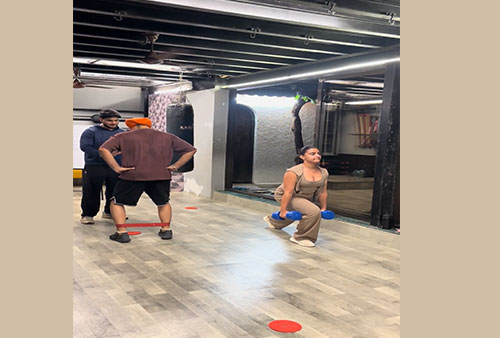Functional Training

⏰ Batch Timings:
8:30 PM
Who It’s For: Suitable for athletes, fitness lovers, and anyone wanting practical strength for everyday life.
Program Overview: Focused on exercises that mimic daily movements, improving strength, balance, and agility.
Benefits:• Increases mobility and posture stability.
• Improves core and joint strength.
• Builds stamina and body coordination.
• Enhances athletic performance and endurance.
• Prevents injuries and muscle imbalances.
Why You Should Do It: It’s one of the best full-body workouts to build real-world strength and body control.
Class Experience: Dynamic sessions with kettlebells, ropes, and resistance training — functional, powerful, and results-driven.

